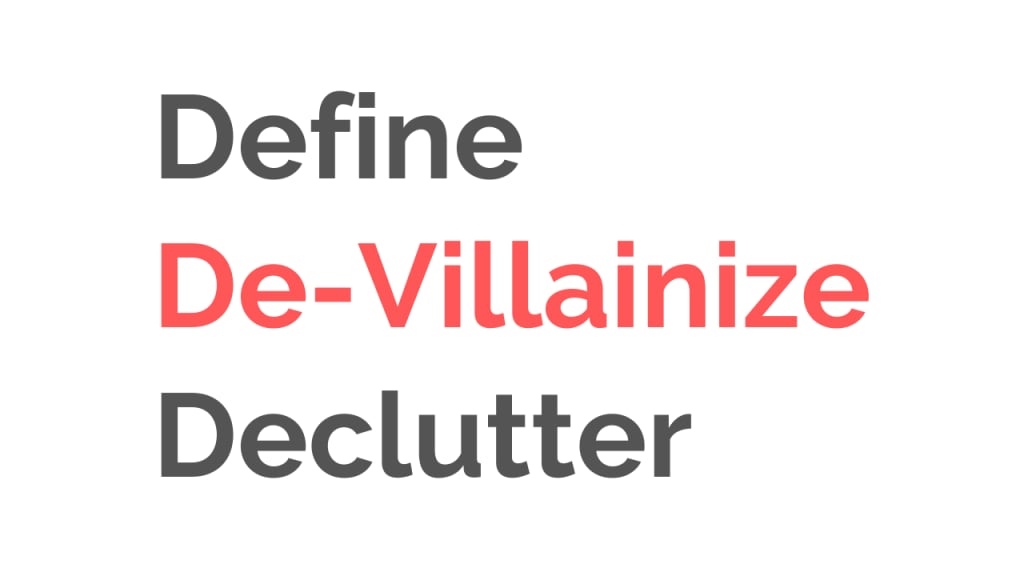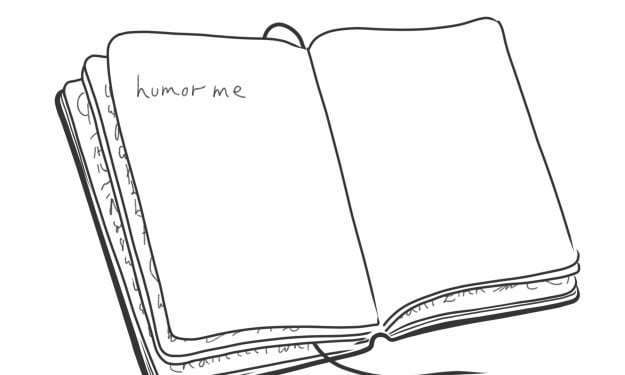Declutter your mind, Marie Kondo-style
How to become kinder and stop judging yourself in three easy steps.

I'm sure you're at least vaguely familiar with the KonMari method for decluttering, which involves going through all your precious belongings and discarding that which doesn't "spark joy".
I wonder, however, if Marie Kondo's method can be used to declutter one's mind?
Hmmmmm.
___________________________________________
Why declutter the mind?
One season never concedes power to another without putting up a fight:
- Ice-cold waters hesitating to heat up and finally welcome beach-goers in the summer;
- Groggy flies bumping into objects as the autumn commands them to sleep;
- The last-man-standing yellow leaf that tenaciously clings to the naked tree as winter takes its hold;
- That occasional, seemingly unmeltable bank of snow enduring direct sunlight well into the spring.
As much as we may want winter to turn into spring at the snap of a finger, there is nothing immediate about mother nature’s ways.
Similarly, you and I cannot help but take some of our old clutter, good and bad habits, and emotional baggage with us into the new season of life—however, there is beauty and purpose to that transitional period as it allows us to reflect on our journey and take stock of what’s important.

___________________________________________
How to declutter the mind, Marie Kondo-style.
Just like Marie Kondo suggests doing as part of the KonMari method for decluttering one’s space, we will begin by taking one of our emotional "possessions" into our hands as if it were a physical object, expressing gratitude for how it has served us in the past, and then deciding its fate going forward. This technique allows us to remove any feelings of guilt associated with the process of decluttering and learn to enjoy bringing things to order.
To begin, I recommend following my own D3-Protocol:
___________________________________________
PART I: Define
First, you have to define a personality trait/tendency/vice that's been causing you some grief on a regular basis. Some examples can be:
- Procrastination,
- Self-doubt,
- Impostor syndrome,
- Oversensitivity (e.g, thin skin for criticism),
- Workaholism,
and so forth.
What is the "groggy fly" in your life that refuses to go to sleep? The ice-cold lake that won't let you enjoy a swim? The sad-looking yellow leaf that won't give in? The perpetual mound of snow that just won't melt away?
Don't overthink it and go with your gut — you know exactly who the frequent offenders are.

___________________________________________
PART II: De-Villainize
Second, try to mentally reframe and turn that trait, tendency, or vice from a Villain that keeps getting in the way of your happiness—to an Ally that has provided you value and served you purpose in the past. Even some of our worst tendencies can "spark joy" in certain circumstances!
For example:
- Procrastination can often be a self-preservation mechanism that helps us survive by preventing us from failing at doing something;
- Self-doubt can help us rethink our current path and choose a better one;
- Impostor syndrome can be an indication that we care to do a good job;
- Oversensitivity can be a beacon signifying potential areas of growth;
- Workaholism can help us reach a dream goal!
Doesn't sound too evil, does it?
Now, try and recall an instance when a "villainous" trait has been an ally to you—and thank it for its service!

___________________________________________
PART III: Declutter
Third, decide whether it goes in the "garbage", "storage", or to immediate use.
Do you want to never, ever procrastinate again?
Or maybe not now, but another time? (Are you procrastinating on procrastination?! That is so pro.)
Or perhaps right now, for a certain specific purpose?
For example, you may decide to use it right now because you have de-villainized procrastination and found that it helps you take a break from having to be perfect, or working non-stop, or worrying about your future. It's a good tool to have in the toolbox.
On the other hand, you may decide to get rid of the impostor syndrome for good; it had served you well in the past by pushing you to be better at your job than the competition, but you are ready to let go of it and stop comparing yourself to other people.
There are many ways to go about decluttering your habits, but there isn't a right or wrong one. Figure out what works for you.

___________________________________________
Putting it into practice.
Print out this handy PDF to accompany your new inter-season ritual of Defining, De-Villainizing, and Decluttering your mind!
Be kind to yourself, and remember this:
The true beauty of seasons lies in the transitions between them.

About the Creator
Nikita Emtsov
I am a strength coach based in Toronto, Canada.
Having dabbled in varying methods of self-expression throughout my life- writing, film, music, coaching- I strive to evoke in myself and others the inherent creativity of the human soul.







Comments
There are no comments for this story
Be the first to respond and start the conversation.